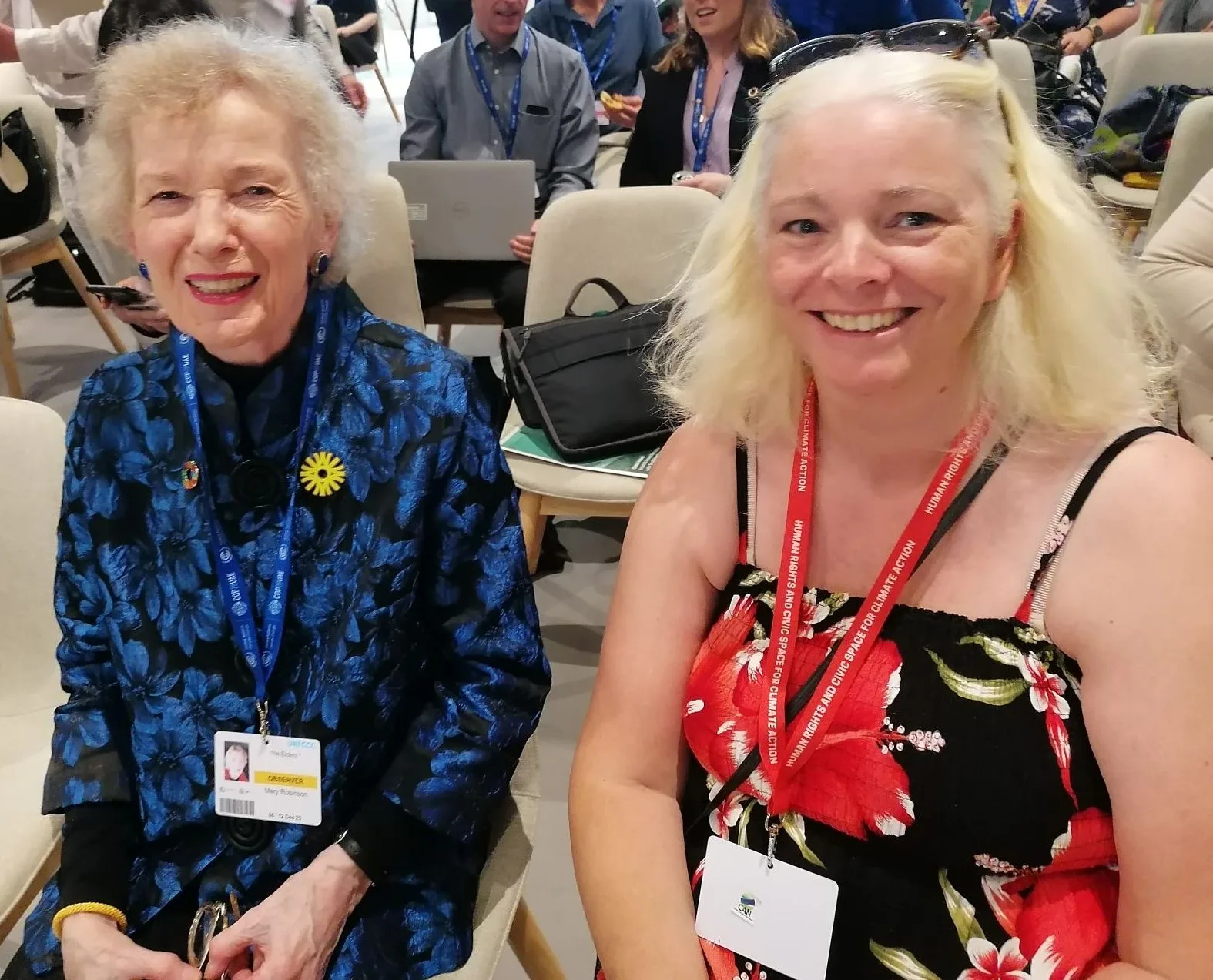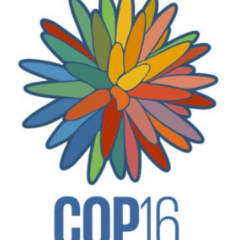COP28 – Pass or Fail?

The year closed with COP28 being hailed as the beginning of the end of fossil fuels. Theresa O’Donohoe from Feasta, the Foundation for the Economics of Sustainability, who was at the conference, casts a critical eye on two weeks of negotiations, reflects on the outcomes and looks to the future.
COP28 did not deliver what’s needed to meet the Paris Agreement to limit temperature increase to below 1.5 degrees above pre-industrial levels. There was no fast, fair, funded, full, forever and feminist roadmap out of fossil fuels. There was no official, concrete action to make this happen.
At December’s COP, the intention by most parties was to incorporate a commitment and pathway to shift away from fossil fuels. It was the year of the first ever Global Stocktake (GST) which was mandated in the Paris Agreement. The GST was intended to assess progress and prepare next steps to enhance outcomes.
The first draft of the GST included the words “phase out” in relation to fossil fuels. That was very well received by 130 of the 190 countries and NGOs.
It was a glimmer of hope. However, by the final draft all traces of “phase out” and “phase down” were gone and the best intention was to “transition away” from fossil fuel. A phase down of coal was the only concession.
The final commitment also relies heavily on carbon capture and storage (CCS). CCS is an evolving, unproven technology. Depending on CCS to extract and store greenhouse gases is a major gamble that we cannot afford. It’s also a concern that CCS gives the illusion that business as usual is an option. In my opinion, including CCS in the final document is reckless.
Is COP working or has it become a distraction?
COP itself is not working at what it set out to do.
Take the Paris agreement at COP19 in 2015 as an example. The long-winded overarching goal was to hold “the increase in the global average temperature to well below 2°C above pre-industrial levels”. It was also to pursue efforts “to limit the temperature increase to 1.5°C above pre-industrial levels”.
In itself, this is indicative of how painstaking the consensus decision making is.
Every single word in every single sentence in every decision is scrutinised by teams of people from every party to the conference. It is a painstaking process as aspirations and compromises merge over the course of 12-14 days.
Despite this, there is little to show that Paris Agreement targets will be met. In fact, it’s the opposite. The Intergovernmental Panel on Climate Change has changed its tactics over the years. Traditionally, scientists did not push for change – they just laid the results out for the policy makers to do the right thing. Now they are blatantly sounding the alarm. https://www.ipcc.ch/2022/04/04/ipcc-ar6-wgiii-pressrelease/
They are right to be alarmed. The latest report from the EU’s climate change service, Copernicus, shows that 2023 was 1.48°C warmer than the 1850-1900 pre-industrial level and it is likely that a 12-month period ending in January or February 2024 will exceed 1.5°C above the pre-industrial level.
The positives – momentum, collaboration and solidarity
While it is failing to keep the world on track to 1.5°C, the COP is not without its positives. It provides a platform for most of the world’s nations to discuss climate change. Without COP, countries would probably do a lot less.
It provides a space for momentum, collaboration and solidarity amongst those who take the plunge into climate action. It gives direction to others when they come on board.
There have been other agreements forged at COPs. These include commitments to increase renewable energy and energy efficiency, the creation of the Beyond Oil and Gas Alliance and a pledge on methane reduction. Most recently, we had the commitment to a fossil fuel non-proliferation treaty.
The International Energy Agency evaluated the potential for some of these agreements and estimated that “they would not be nearly enough to move the world onto a path to reaching international climate targets, in particular the goal of limiting global warming to 1.5°C.” https://www.iea.org/news/iea-assessment-of-the-evolving-pledges-at-cop28
Other things that work are networking opportunities, platforming first-hand accounts from people most affected by climate breakdown and collaborative campaigns.
Preparation and networking
There were record numbers of emissions-intensive industry lobbyists attending COP. These included the meat, dairy and fossil fuel industry in its many guises. They can afford to be well-represented. Unfortunately, the environmental sector does not have that much disposable income. Ireland has never had many environmental NGOs represented at the conference. Without doubt, more Irish environmental NGOs need to attend. This does not have to be in-person representation. Tuning in remotely and gleaning insights that may have been missed on the ground, would be very helpful.
Collaborating year-round as part of a wider network, such as the Climate Action Network (CAN), will better prepare our NGO representatives. An Taisce, Friends of the Earth Ireland and Stop Climate Chaos are members of CAN.
CAN comprises more than 1,900 civil society organisations in over 130 countries. It drives collective and sustainable action to fight the climate crisis and to achieve social justice. CAN convenes and coordinates civil society at the UN climate talks and other international fora. It is an excellent alliance to be part of and, at COP, the network organises a schedule of daily meetings, working groups and events relevant to NGOs.
Ahead of the conference, NGOs should get involved with the national preparations for the COP. We should look for scope to engage with the relevant points of contact within the Irish government. For example, one workshop advised contacting the gender climate negotiator/focal point in government with a view to a meeting and reviewing the country’s Gender Action Plan (GAP). Perhaps that should be done for all the themes covered at the COP. If the government has a strong action-focused plan, it would be less likely to be swayed by lobbyists.
How can COP be improved?
The negotiations should be made public. Far too much is discussed behind closed doors. The public deserves to know who is blocking progress and why. NGOs should hear exactly what their government representatives are saying.
Fossil fuel and any business-as-usual lobbyists should not be in attendance. Going a step further, maybe any country blocking climate action should be barred. There are plenty of trade fairs and other events they can attend.
For additional insight you can find more at Theresa’s blog.






